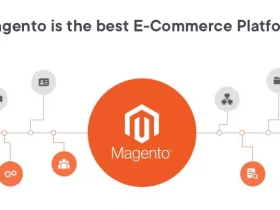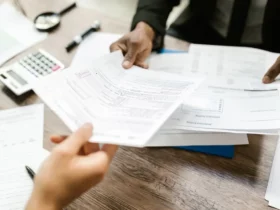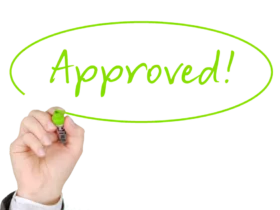Are you tired of feeling burdened by your loans? Do you constantly worry about making payments and how it affects your financial future? If so, you’re not alone. Research shows that the average American household carries over $103,358 in debt. With such high numbers, it’s no wonder that many people struggle with managing their loans and paying them off efficiently. But fear not, there is hope. We’ll take an in-depth look at 7 tips that can help you successfully pay off your loans and alleviate some of that financial stress.
Create a Budget
The first step in paying off your loans is to create a budget: you will see exactly where your money is going and determine how much you can realistically allocate towards loan payments each month. If you have bad credit, it might not be easy to qualify for a traditional loan. In this case, you can apply for lenders that offer fast extra cash loans, but be careful not to fall into a cycle of debt. Fast cash often means you need to have enough budget to repay it as soon as possible. Failure to repay means you will end up paying a higher interest rate which can add to your financial burden.
That said, you must stay disciplined with your budget and stick to it. Consider cutting back on unnecessary expenses and finding ways to increase your income, such as taking a side hustle or freelance work.
Pay More Than the Minimum
Whenever feasible, aim to pay more than the minimum amount required on your loans. This practice shortens the repayment period and reduces the total interest accrued over time. Start by focusing on loans with the highest interest rates, often credit cards or private loans, as these are the most expensive debts.
Use any extra funds, such as tax refunds, bonuses, or gifts, to make additional payments. If your budget allows, consider making biweekly payments instead of monthly ones. This strategy results in one extra full payment each year, which can make a significant difference in your overall repayment timeline. Even small additional contributions can compound into substantial savings on interest and can be the decisive factor in freeing yourself from debt sooner rather than later.
Tackle High-Interest Loans First
Paying off high-interest loans as a priority can save you considerable amounts of money in the long run. Referred to as the debt avalanche method, this strategy involves making minimum payments on all debts while throwing any extra cash at the debt with the highest interest rate until it’s fully paid off.
Once the most expensive debt is eliminated, you focus on the next highest rate, and so on. This method is mathematically sound as it reduces the amount of interest you pay overall. However, it requires patience and a good handle on your finances since progress can seem slow at first. Stick with it, though, and you’ll see your efforts pay off as each high-interest loan disappears.
Consider Refinancing or Consolidating
If you have multiple loans with varying interest rates, consolidating them into one loan can make your payments more manageable. Think of it as merging all your debts into one big loan, often at a lower interest rate. You can also explore refinancing options for individual loans with high interest rates. Refinancing involves taking out a new loan to pay off an existing one, ideally at a lower interest rate.
It’s essential to carefully consider the terms and conditions of any consolidation or refinancing offers before making any decisions. You may end up paying more in interest over the long term, so be sure to do your research and compare rates from different lenders.
Utilize Extra Funds Wisely
Any windfalls, such as tax refunds or work bonuses, present an excellent opportunity to make substantial dents in your loan balances. Consider allocating a significant portion, if not all, of these extra funds to your loan repayment rather than treating them as money for discretionary spending. This trims down your principal faster and decreases the amount of interest accrued in the long term.
Set aside a small amount for immediate enjoyment or into an emergency fund to ensure you’re not entirely depriving yourself while staying on track with your financial goals. Even small contributions can make a difference if done consistently.
Automate Your Payments
If you’re the type of person who sometimes forgets to make payments on time, setting up automatic payments can be a lifesaver. Many banks and lenders offer this option, and it ensures that your payments are always made on time. Some even provide a discount on interest rates for doing so.
Don’t forget to monitor your accounts regularly to ensure that the correct amount is being deducted each month. If you encounter any issues with automatic payments, address them immediately to avoid late fees or potential negative impacts on your credit score. You don’t want to ruin your credit score even further while trying to improve it.
Stay Informed About Your Loans
Staying well-informed about your loans is crucial to managing and paying them off successfully. Regularly review your loan statements and keep track of balances, interest rates, and repayment terms. If you have federal student loans, familiarize yourself with different repayment plans and forgiveness programs that you may be eligible for. Private loans often have less flexibility, so it’s even more important to understand their terms.
If ever in doubt or facing financial difficulties, don’t hesitate to contact your lenders. Open communication can lead to alternate payment options or temporary relief through forbearance or deferment. Arming yourself with knowledge provides the power to make the best decisions for your financial situation and keeps unexpected charges or changes from taking you by surprise. Ignorance is never bliss when it comes to debt: the more informed you are, the better equipped you’ll be to conquer it and emerge financially secure.

The journey to paying off loans requires discipline, commitment, and a well-thought-out strategy. With these strategies in place, you position yourself to become debt-free quickly. Utilizing extra funds wisely, automating payments, and staying informed about your loan details will support your financial wellness. It’s about taking control of your debts instead of letting them control you. Remember, every step toward paying off your loans is a step towards financial freedom and peace of mind.












